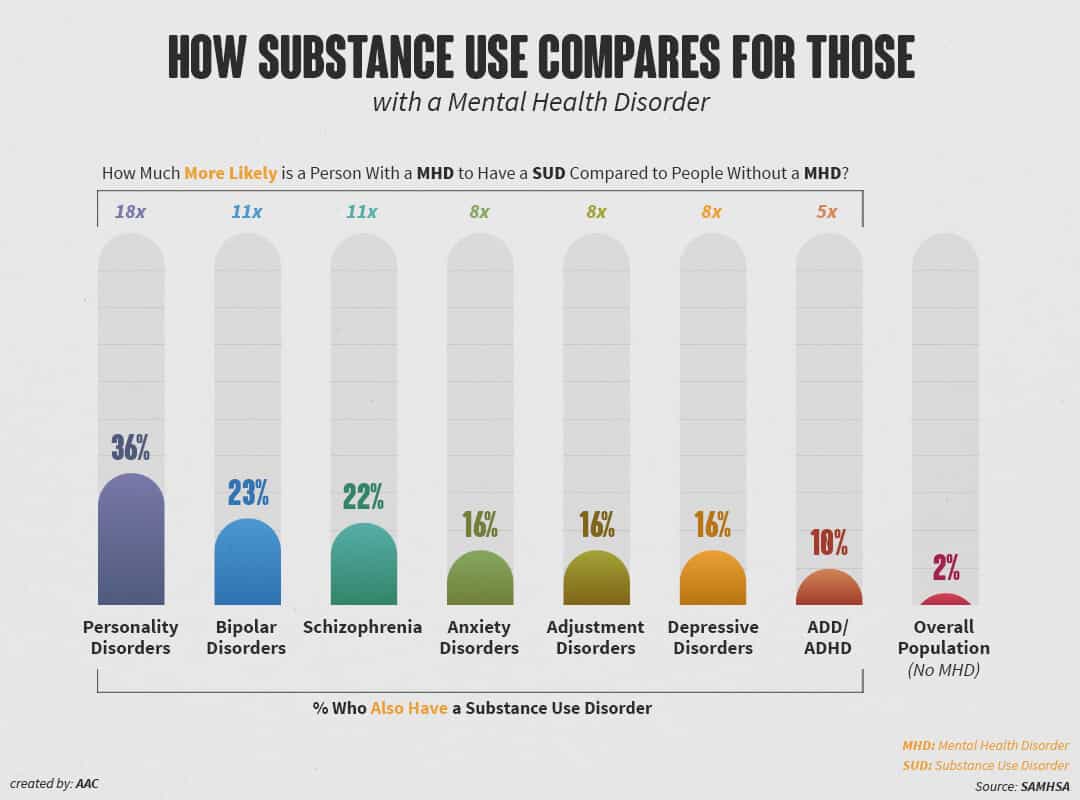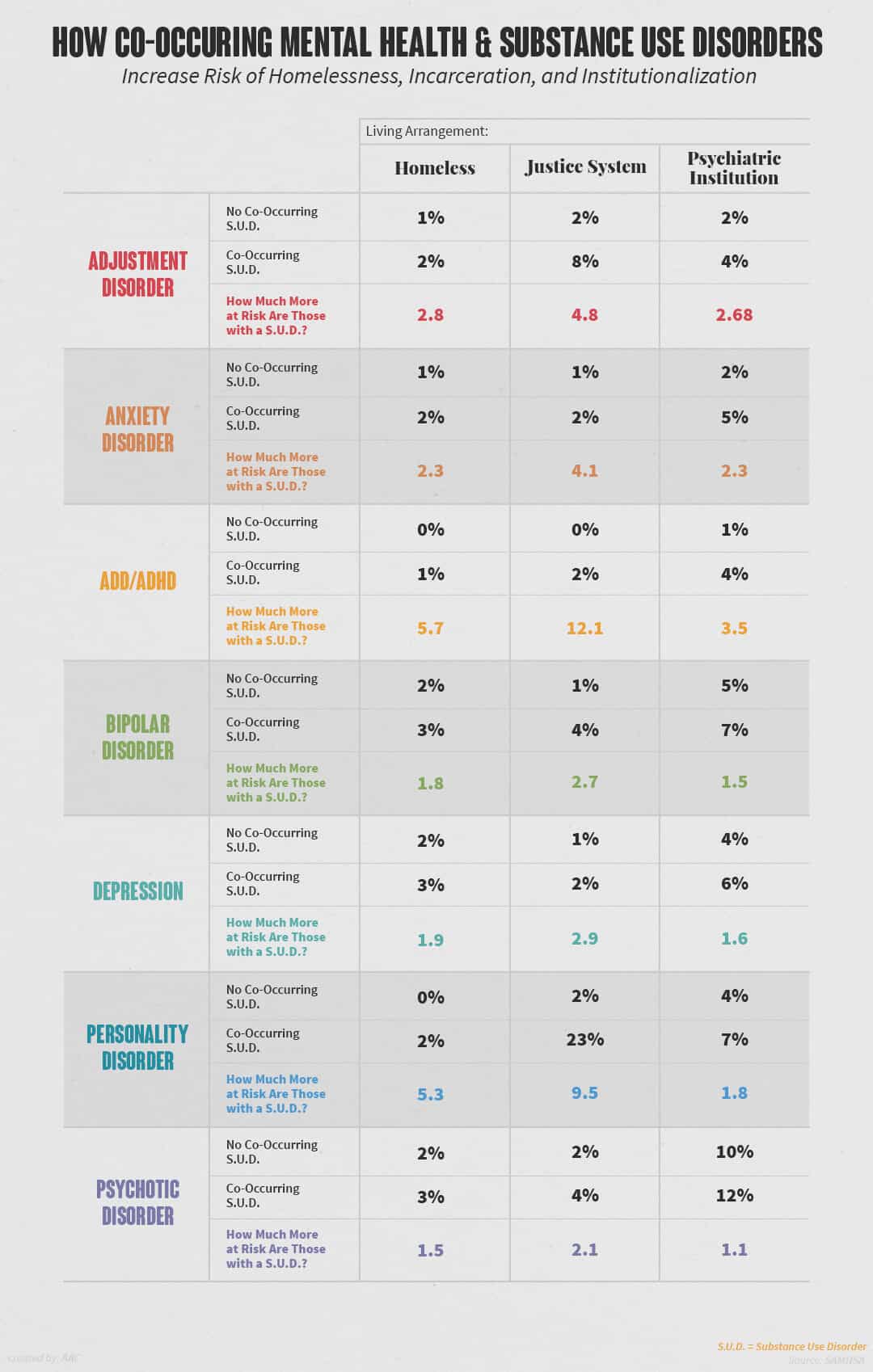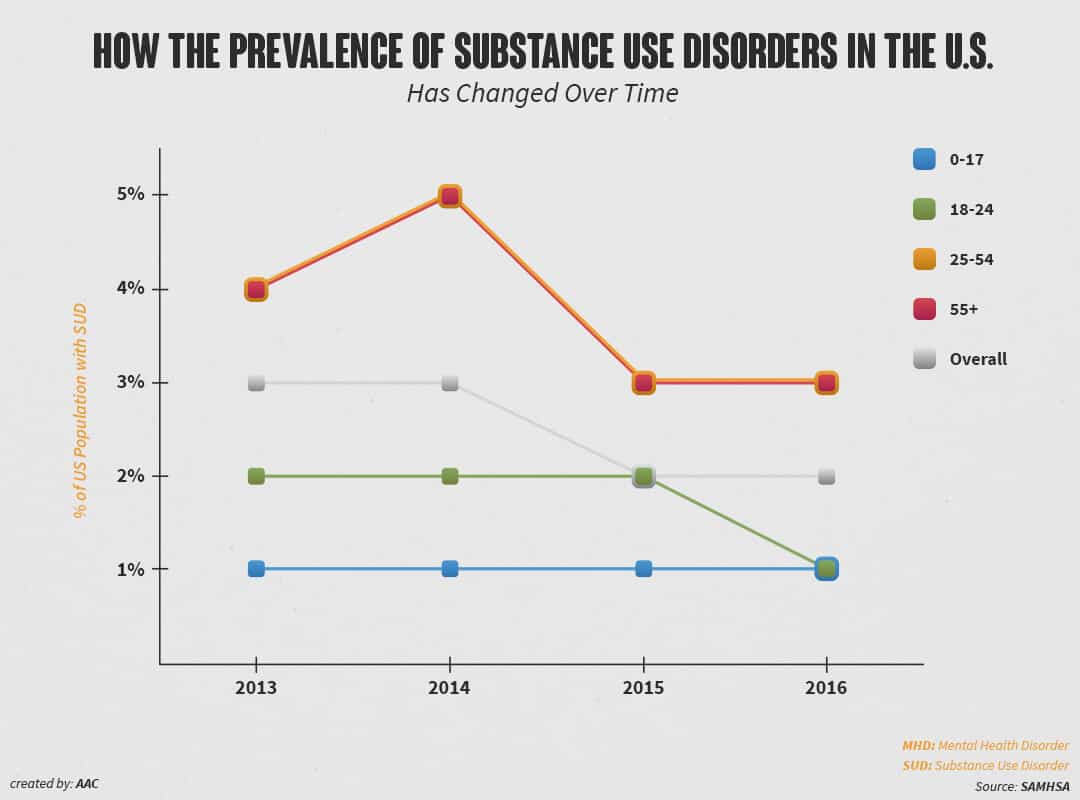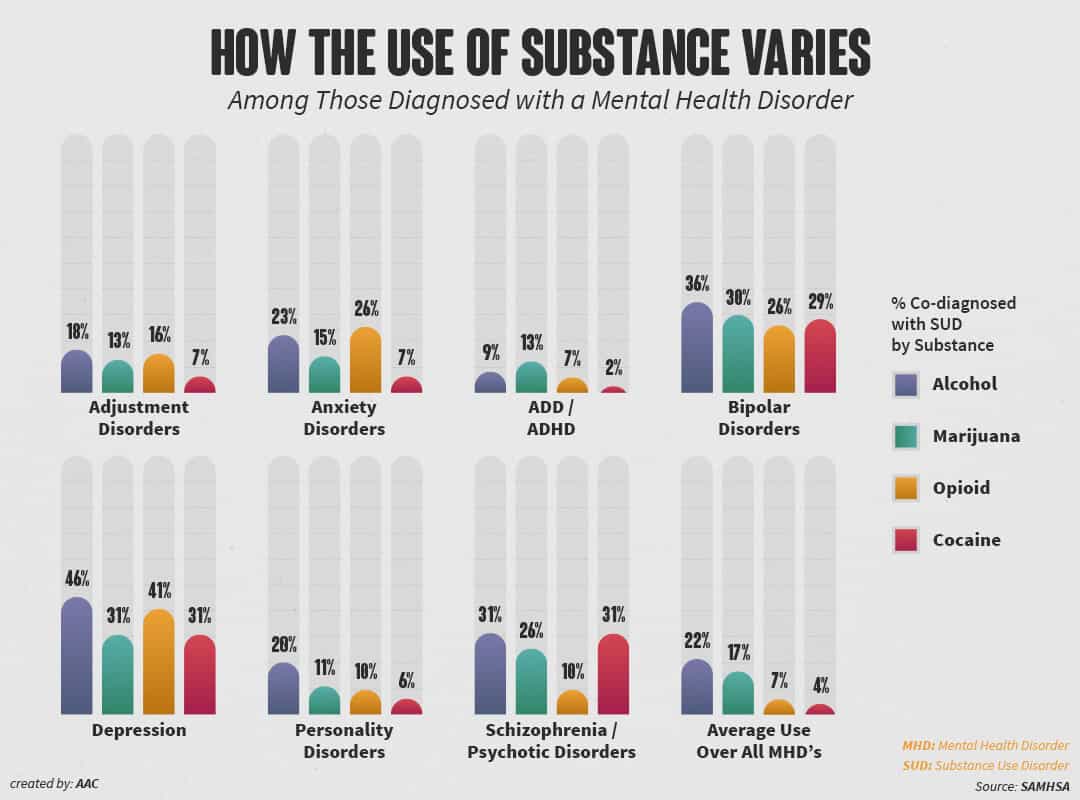Written by:Editorial Staff
Updated Aug 2, 2022
About The Contributor
Editorial Staff
Author, American Addiction Centers
The editorial staff of American Addiction Centers is made up of credentialed clinical reviewers with hands-on experience in or expert knowledge of addiction treatment. Read More
Substance use disorder can affect people from any background, ethnicity, or gender with equal opportunity, but there are certain factors that place people more at risk of becoming addicted to drugs or alcohol. One major risk factor that contributes to substance use disorder (SUD) is another co-occurring mental health disorder. Those diagnosed with mental health disorders are at a much higher risk of experiencing SUD.
Our team decided to examine the exact statistics based on reports from the Substance Abuse and Mental Health Services Administration(SAMHSA). The resulting insights concerning those diagnosed with a co-occurring mental health disorder and substance use disorder are staggering, and you can see a compilation of our findings below.

Of those who were diagnosed with each of these mental health disorders, a large percentage were also diagnosed with substance use disorder. Only 2% of the overall population without a mental health disorder suffer from SUD. In contrast, over a third of the people diagnosed with a personality disorder were also diagnosed with SUD. For example, those diagnosed with personality disorder were 18 times more likely to have SUD than those without a mental health disorder.
This trend repeats itself with all of the major mental health disorders. Those diagnosed with bipolar disorder and schizophrenia are both 11 times more likely than the general population to suffer from SUD. Anxiety, adjustment, and depressive disorders all have a rate 8 times that of the general population for SUD. Attention deficit disorder (ADD) and attention deficit hyperactivity disorder (ADHD) had the lowest rate of co-occurring SUD, but even those disorders increase people’s risk of SUD by 5 times.

Those suffering from mental health disorders, in general, are at higher risk of homelessness, imprisonment, or being admitted to a psychiatric institution. Those struggling with both substance abuse and mental health disorders are often 2 or 3 times more likely than people diagnosed with only a mental health disorder to wind up homeless. Similarly, those suffering from a co-occurring mental health disorder and SUD were far more likely than those with just a mental health disorder to spend time in a psychiatric institution or in the justice system. Those with a personality disorder combined with SUD are at the greatest risk of spending time in the justice system, and those with schizophrenia or a psychotic disorder are most likely to be sent to a psychiatric institution.

Substance use disorder has become more prevalent in the U.S. over the past decade, with an average of 3% of the population experiencing SUD in 2013 and 2014. That percentage fell to 2% in 2015 and 2016.
The average percentage of people with SUD is higher in those aged 25 and over. Nearly 5% of the U.S. population in 2014 in that age group had SUD, although that number fell in 2015 and stayed steady at 3% in 2016. That age group still has the highest rate of SUD overall.

Overall, alcohol was the most common substance to be abused by those with mental health disorders. However, in the case of anxiety disorders, opioids were the most commonly abused substance, and in the case of ADD/ADHD, marijuana was the most common substance to be abused. Those with depression had the highest rates of substance abuse overall, followed closely by bipolar disorder and schizophrenia and psychotic disorders.
Those suffering from mental health disorders and substance use disorder are fighting battles on multiple fronts. Mental health and management of addiction go hand in hand, and it’s crucial that those diagnosed with co-occurring mental health and substance use disorders get additional support. If you’re looking for more information on treatment options for those with co-occurring disorders here.
CAN I USE THIS INFORMATION?
The information and graphics in this blog post can be used and displayed by all commercial and non-commercial websites without charge. However, use is only permitted with proper attribution to americanaddictioncenters.org. When using this information or any of these graphics, please include a backlink to this page.
